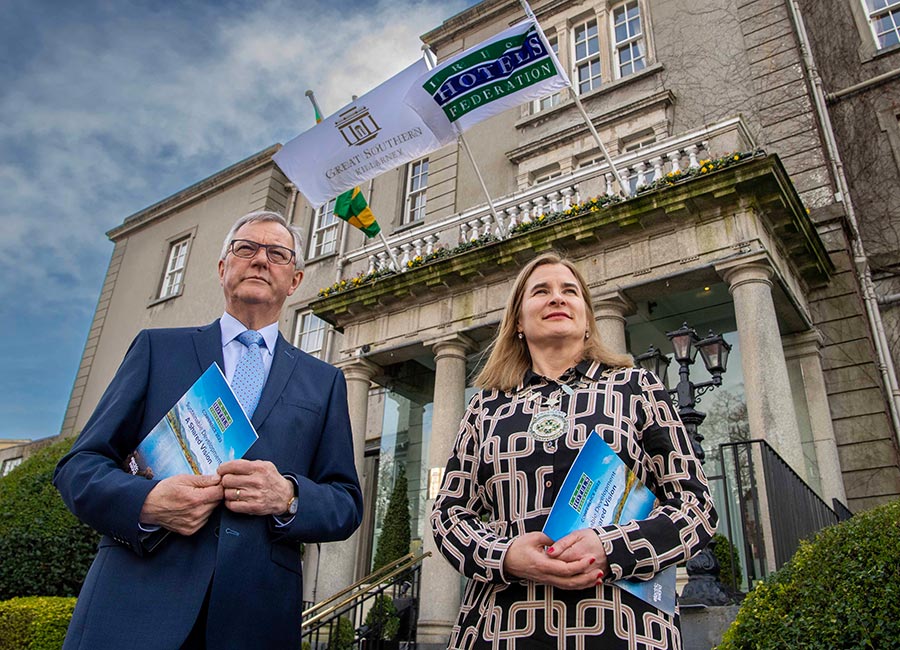A new competitiveness report says that Ireland finds itself in the company of countries like Iceland, Denmark and Sweden insofar as it is ‘high cost, slowly increasing’.
The National Competitiveness Council’s Cost of Doing Business in Ireland 2019 flags areas where business costs are out of line with Ireland’s international competitors and seeks to build an evidence base to support policy recommendations to the government on how to tackle emerging risks.
Chairman Prof Peter Clinch said: “While the overall cost picture is positive, some areas are a cause for concern. After years of moderate growth, in 2018 labour costs increased by 2.9%, four times faster than consumer prices. Without similar increases in labour productivity, this increase in costs will simply put pressure on Irish prices.
“Interest rates in Ireland are considerable higher than rates in the euro area meaning that an Irish business, looking to borrow money to future-proof its operations, faces costs that are on average 65% higher than their EU counterparts.
“We also need to be mindful of the tax system. In Ireland the taxes paid by someone earning the average income relative to the employer’s labour costs is one of lowest in the OECD. However, people earning higher incomes face one of the highest marginal tax rates. This could create a disincentive to work for highly skilled employees.
Business Insurance
The Alliance for Insurance Reform expressed astonishment that the NCC report virtually ignores the ongoing business insurance crisis.
AIR notes that the report ignores liability insurance, the type of insurance that is putting small businesses and voluntary groups all over the country under such pressure right now, other than to say that they cannot get any data.
Alliance director and play centre owner Linda Murray commented: “How can the NCC stand over this report when it completely ignores the crisis small businesses all over the country are facing due to spiralling insurance costs."
Eoin McCambridge, Alliance director and MD of McCambridges shop and restaurant in Galway, added: “The National Competitiveness Council is supposed to be a watchdog on behalf of the Irish economy. Well they have really dropped the ball in this report."
Peter Boland, director of the Alliance, commented: “What this report reflects most is a lack of data but the NCC could and should have done much better. They briefly mention that they are ‘constrained in terms of the availability of metrics’, but given that the Central Bank has abolished most of the metrics that were available in this area, such as the Blue Book and the Private Motor Insurance Statistics (PMIS) the NCC should be shouting about this issue from the rooftops.
“We note that the NCC is dominated by government departments that have failed to drive insurance reform and by big business and their advocates who are the least impacted by this crisis.
“Additionally, we would strongly dispute their assertion that car insurance costs 'have normalised'. This may apply to the narrow band of consumer premiums covered by the available CSO data, but it does not in any way reflect the experience of small businesses communicating with us.
"This report further confirms our view that Official Ireland is in no hurry to resolve this crisis despite the damage insurance costs are causing to small businesses, community groups, charities, sporting organisations and arts groups all over the country.”
Childcare Costs
According to the NCC analysis, childcare costs are proportionately more than double than in other EU states. Net childcare fees in Ireland make up 28% of the average wage of a couple. This is much higher than the EU average, where net childcare costs account for only 12% of the average wage of a couple.
The NCC also reports that as a proportion of income, residential rents are now among the highest in Europe.
The report lists a range of areas where Irish costs are way ahead of those elsewhere. Average office rents, at €646/m2 in late 2018, exceed those in Amsterdam (€450/m2), Berlin (€396/m2) and Brussels(€275/m2) but are less than in Paris (€810/m2) and London City (€804/m2).
Prices in all transport sectors except sea and coastal transport have steadily increased, with postal and courier services recording the highest price increase, followed by warehousing, storage and cargo services. Some relief came from falling fuel prices, but those are now on the way up again.
Some utility costs, including electricity and gas, tend to be higher than elsewhere, while Ireland is more competitive for other utility costs such as telecoms. Within the EU Ireland is one of the most expensive countries for electricity for both large and small users.
The NCC report is available here.












